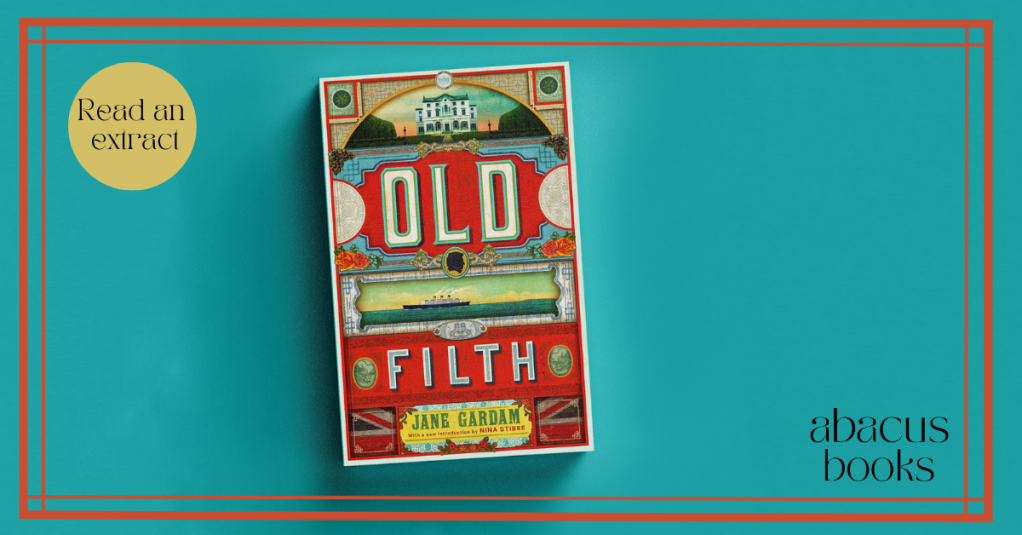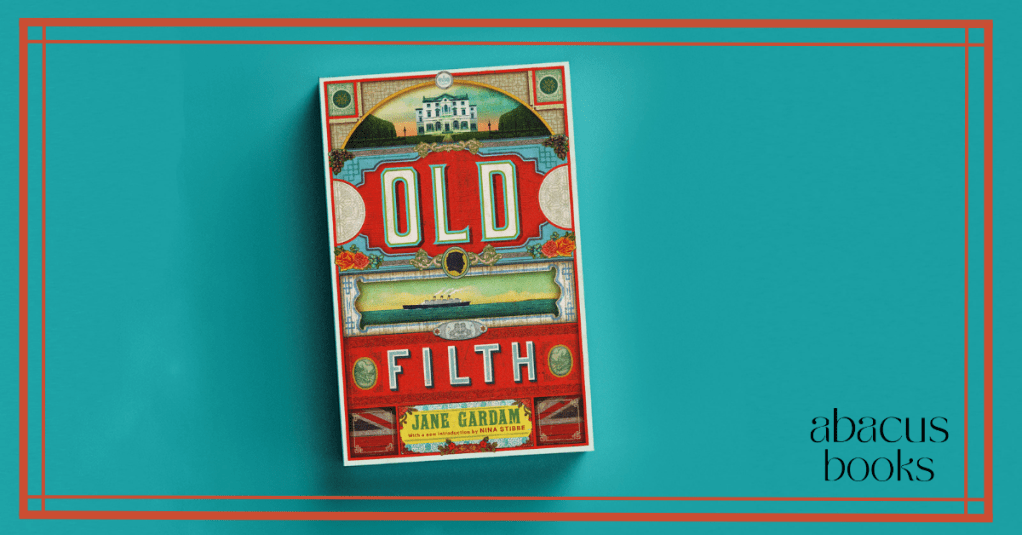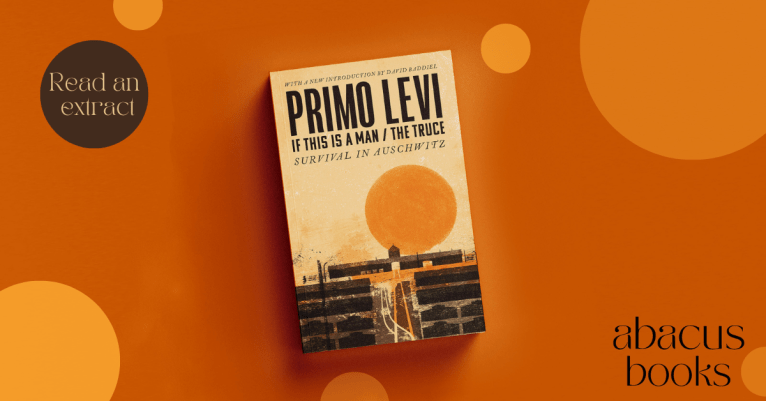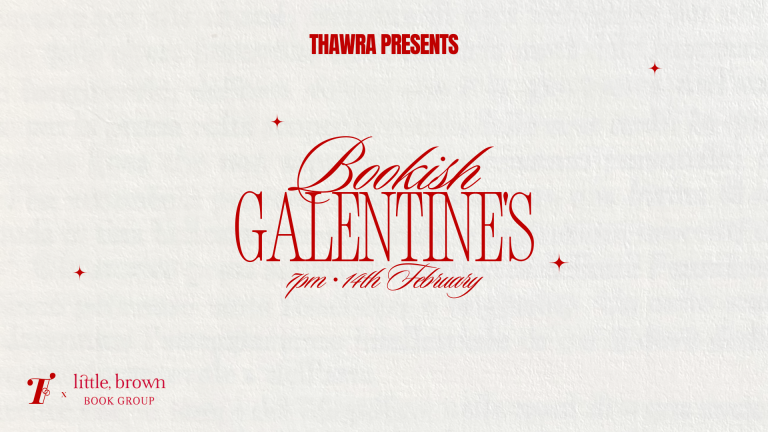Read an extract from Old Filth by Jane Gardam


Jane Gardam’s funny and wise masterpiece, reissued with a new introduction by Nina Stibbe.
‘Old Filth has stayed with me for years’ Sathnam Sanghera
‘Sharp, humane, generous and wonderfully funny’ Hilary Mantel
‘The last great book I read’ Rachel Weisz
‘Gardam’s masterpiece’ Guardian
-
The Donheads
He was spectacularly clean. You might say ostentatiously clean. His ancient fingernails were rimmed with purest white. The few still-gold hairs below his knuckles looked always freshly shampooed, as did his curly still-bronze hair. His shoes shone line conkers. His clothes were always freshly pressed. He had the elegance of the 1920s, for his garments, whatever they looked like off, always became him. Always a Victorian silk handkerchief in the breast pocket. Always yellow cotton or silk socks from Harrods; and some still-perfect from his old days in the East. His skin was clear, and, in a poor light, young.
His colleagues at the Bar called him Filth, but not out of irony. It was because he was considered to be the source of the old joke, Failed In London Try Hong Kong. It was said that he had fled the London Bar, very young, very poor, on a sudden whim just after the War, and had done magnificently well in Hong Kong from the start. Being a modest man, they said, he had called himself a parvenu, a fraud, a carefree spirit.
Filth in fact was no great maker of jokes, was not at all modest about his work and seldom, except in great extremity, went in for whims. He was loved, however, admired, laughed at kindly and still much discussed many years after retirement.
Now, nearly eighty, he lived alone in Dorset. His wife Betty was dead but he often prattled on to her around the house. Astonishingly in one so old, his curly hair was not yet grey. His eyes and mind alert, he was a delightful man. He had always been thought so. A man whose distinguished life had run steadily and happily. There was no smell of old age about his house. He was rich and took for granted that it (and he) would be kept clean, fed and laundered by servants as it had always been. He knew how to treat servants and they stayed for years.
Betty had been successful with servants, too. Both she and Old Filth had been born in what Americans called the Orient and the British Raj had called the Far East. They knew who they were, but they were unselfconscious and popular.
After Betty’s death the self-mockery dwindled in Old Filth. His life exploded. He became more ponderous. He began, at first slowly, to flick open shutters on the past that he had, as a sensible man with sensible and learned friends (he was a QC and had been a Judge), kept clamped down.
His success as an advocate in Hong Kong had been phenomenal for he had ease, grasp, diligence and flair. His career had taken off the minute he had begun to be briefed by the Straits-Chinese. It was not just that scraps of eastern languages began to re-emerge from his childhood in Malaya, but a feeling of nearness to the Oriental mind. When Old Filth spoke Malay or (less ably) Mandarin, you heard an unsuspected voice. Chinese, Malay and Bengali lawyers – though often trained at Oxford and the Inns of Court – were thought to be not straightforward but Filth, now Old Filth and after his retirement often Dear Old Filth, had found them perfectly straightforward, and to his taste.
All his life he kept a regard for Chinese values: the courtesy, the sudden thrust, the holiness of hospitality, the pleasure in money, the decorum, the importance of food, the discretion, the cleverness. He had married a Scotswoman but she had been born in Peking. She was dumpy and tweedy with broad Lanarkshire shoulders and square hands, but she spoke Mandarin perfectly and was much more at home with Chinese ways and idiom than she ever felt on her very rare visits to Scotland. Her passion for jewellery was Chinese and her strong Scottish fingers rattled the trays of jade in the street markets of Kowloon, stirring the stones like pebbles on a beach. ‘When you do that,’ Old Filth would say – when they were young and he was still aware of her all the time – ‘your eyes are almond-shaped.’ ‘Poor old Betty,’ he would say to her ghost across in another armchair in the house in Dorset to which they had retired and in which she had died.
And why ever Dorset? Nobody knew. Some family tradition somewhere perhaps. Filth said it was because he disliked everywhere else in England, Betty because she felt the cold in Scotland. They both had a dismissive attitude towards Wales.
But if any old pair had been born to become retired ex-pats in Hong Kong, members of the Cricket Club, the Jockey Club, stalwarts of the English Lending Library, props of St Andrew’s Church and St John’s Cathedral, they were Filth and Betty. People who would always be able to keep servants (Filth was very rich), who would live in a house on The Peak, be forever welcoming hosts to every friend of a friend’s friend visiting the Colony. When you thought of Betty, you saw her at her round rosewood dining table, looking quickly about her to see if plates were empty, tinkling her little bell to summon the snakey smiling girls in their household livery of identical cheongsams. Old Filth and Betty were perfectly international people, beloved ornaments at every one of the Memorial Services to old friends, English or Chinese, in the Cathedral. In the last years these deaths had been falling thick and fast upon them.
Was it perhaps ‘The Pound’ that drew them to Dorset? The thought of having to survive one day in Hong Kong on a pension? But the part of Dorset they had chosen was far from cheap. Betty was known to ‘have her own money’ and Filth had always said merrily that he had put off making Judge for as long as possible so that he hadn’t to live on a salary.
And they had no children. No responsibilities. No one to come back to England for.
Or was it – the most likely thing – the end of Empire? The drawing-near of 1997? Was it the unbearableness of the thought of the arrival of the barbarians? The now unknown, but certainly changed, Mainland-Chinese whose grandparents had fed the baby Miss Betty on soft, cloudy jellies and told her frightening fairy tales?
Neither Filth nor Betty cared for the unknown and already, five years before they left, English was not being heard so much in Hong Kong shops and hotels and, when it was heard, it was being spoken less well. Many familiar English and Chinese had disappeared to London or Seattle or Toronto, and many children had vanished to foreign boarding schools. The finest of the big houses on The Peak were in darkness behind steel grilles, and at Betty’s favourite jeweller the little girls behind the counter, who sat all day threading beads and who still seemed to look under sixteen although she had known them twenty years, glanced up more slowly now when she rang the bell on the armour-plated door. They kept their fixed smiles but somehow found fewer good stones for her. Chinese women she knew had not the same difficulty.
So suddenly Filth and Betty were gone, gone for ever from the sky-high curtains of glittering lights, unflickering gold, soft-green and rose, from the busy waters of the finest harbour in the world and the perpetual drama of every sort of boat: the junks and oil tankers and the private yachts like swans, and the comforting, bottle-green bulk of the little Star Ferries that chugged back and forth to Kowloon all day and most of the night. This deck accommodates 319 passengers. Filth had loved the certainty of the 19.
So they were gone, far from friends and over seventy, to a house deep in the Donheads on the Dorset-Wiltshire border, an old low stone house that could not be seen from its gate. A rough, narrow drive climbed up to it, curving towards it and out of sight. The house sat on a small plateau looking down over forests of every sort and colour of English tree, and far across the horizon was a long scalpel line of milky, chalky downland, dappled with shadows drawn across it by the clouds. No place in the world is less like Hong Kong or the Far East.
Yet it was not so remote that a doctor might start suggesting in a few years’ time that it might be kinder to the Social Services if they were to move nearer to civilisation. There was a village half a mile up the hilly road that passed their gate, and half a mile in the other direction, also up a hill for their drive ran down into a dip, were a church and a shop. There were other houses among the trees. There was even a house next door, its gateway alongside theirs, its drive curving upwards as did their own, though branching away. It disappeared, as did their own. So they were secluded but not cut off.
And it worked. They made it work. Betty was the sort of woman who had plotted that the end of her life would work, and Filth, having Betty, had no fears of failure. They changed of course. They discarded much. They went out and about very little. Betty wrote a great many letters. They put their hearts into becoming content, safe in their successful lives. Filth had always said – of his Cases – ‘I am trained to forget.’ ‘Otherwise,’ he said, ‘how could I function?’ Facts, memories, the pain of life – of lives in chaos – have to be forgotten. Filth had condemned men to death. Had seen innocent men convicted. As a Silk he reckoned that fifty per cent of his Cases had gone wrong. In Hong Kong the Judges lived in an enclave of palaces but behind steel gates guarded night and day.
In The Donheads they felt safe behind the lock of their old-fashioned farmhouse door that could never accidentally be left on the latch. Betty gardened, Filth read thrillers and biographies, worked now and then in his tool shed. He kept his Judge’s wig in its oval black-and-gold tin box on the hearth, like a grey cat in a basket. Then in time, as there was nobody but Betty to be amused, he moved it to his wardrobe to lie with his black silk stockings and buckled shoes. He had not brought the Black Cap home.
Betty sat sewing. She often stared for hours at the trees. They went to the supermarket in Shaftesbury once a week in their modest car. A gardener came to do the heavy digging and a woman from a nearby village came in four times a week to clean, cook and do the laundry. Betty said that Hong Kong’s legacy was to make foreigners unable to do their own washing. After Betty died, the gardener and the woman continued to work for Filth. Filth’s lifetime of disciplined charm survived well.
Or so it seemed. Looking back, Filth knew that beneath his apparent serenity the years after Betty’s departure had been a time of mental breakdown and that mental breakdown in someone conditioned to an actor’s life (which is the Bar) can be invisible both to the suffered and everyone else.
And this – the event he came to see as the beginning of enlightenment – occurred one Christmas, two years on. The cleaning lady started it.
Discover the book:







